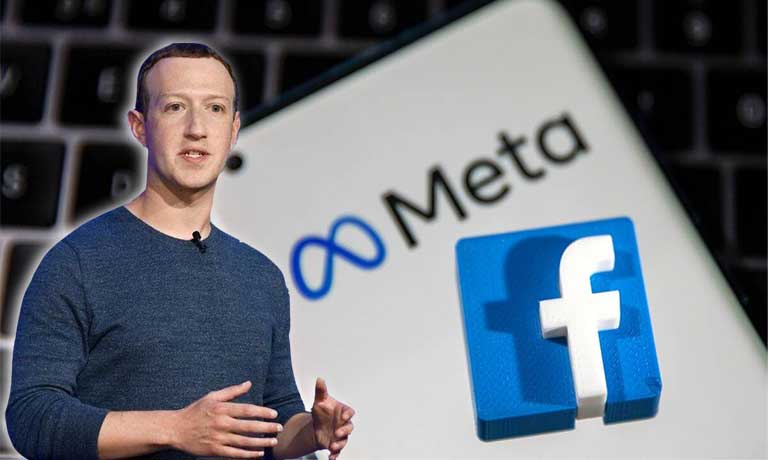This shift in focus comes at the same time that Facebook is facing a wide range of scrutiny for the real-world harms caused by its multiple platforms following the release of hundreds of internal documents by a whistleblower.
On Saturday, Facebook founder Mark Zuckerberg announced that the firm had renamed itself Meta, thus downgrading the company’s identity to a subsidiary, alongside Instagram and WhatsApp, rather than the primary brand.
MVRS, the stock ticker for the corporation formerly known as Facebook, was also announced in a news release.
It is possible that a rebranding is part of an effort to repair Facebook’s reputation and turn the page after a series of PR nightmares, including the spread of false information on its platforms, the failure of content moderation, and revelations about the negative impact of its products on the mental health of some users.
Zuckerberg revealed the name change during Facebook Connect, the company’s virtual reality conference, which focuses on bringing virtual and augmented reality technologies together in a new online universe.
“As we embark on this new chapter, I’ve been reflecting on our collective identity a lot. On Thursday, Mark Zuckerberg proclaimed that Facebook was “one of the most widely used products in history”. A well-known social media brand, but one that increasingly fails to represent the full scope of what we do.
When it comes to building technology to link people, “we’re perceived as a social networking firm today, but in our DNA we are a company that produces technology.” It is just what social networking was when we first began out,” he says.
The Greek word meta, which means “beyond,” was an inspiration for Zuckerberg, who stated he adored studying classics in school. What that means to me is there is always more to build.”
A blue infinity sign has replaced the company’s old corporate symbol, which depicted a “thumbs up,” outside its offices in California.
Facebook Reality Labs, the firm’s section devoted to augmented and virtual reality services, will now be a different reporting area from its social apps, the company announced earlier this week. Beginning in the fourth quarter, the new policy will take effect.
No executive changes were announced by Facebook on Thursday. The title of “Founder and CEO at Meta” was added to Zuckerberg’s personal Facebook page.
Mark Zuckerberg answered, “Probably.” when asked by The Verge whether or not he will remain CEO of Facebook for the next five years. For how long I intend to do this, I don’t have a set end date in mind. The best way to describe it is that I’m looking forward to the next phase of our work.”
Ahead of today’s much-anticipated product announcement, Facebook CEO Mark Zuckerberg teased a number of new concepts for the metaverse, including new social, gaming, and workplace themes.
“There are significant issues to work on right now, despite what some may say. I realize that today isn’t the time to think about the future. There will always be “Facebook CEO Mark Zuckerberg made the comment. “There are so many variables at play that it is impossible to know when the right moment to focus on the future will arrive. That said, I’m confident that many of you feel the same way.”
According to Zuckerberg, “We live for what we’re building.” In the midst of our failures, we continue to learn, grow, and progress.
Using concept videos, Facebook demonstrated its vision for the metaverse, such as sending holographic images of yourself to a performance, gathering around virtual meeting tables with remote coworkers or playing immersive games with pals. Facebook has stated that it would hire 10,000 individuals in Europe to implement the plan.
The Oculus Quest’s new home page will allow users to communicate and play games in the virtual world more socially, as well as a virtual marketplace where developers can sell virtual goods.
He remarked, “Your devices will no longer be the focus of your attention.” “In the next five or ten years, we’re going to see a lot of these technologies come together. Many of us will be building and inhabiting worlds that are just as realistic and believable as this one, on a regular basis, and this will become more and more mainstream.”
Several big corporations have renamed their long-standing brands in recent years. KFC changed its name to KFC while Datsun changed its name to Nissan. Following a scandal or incident, some high-profile names have been changed. Many companies have altered their names, including Marlboro producer Philip Morris and airline ValuJet when one of their planes crashed in 1996.
To better reflect the company’s long-term goals, other name modifications have been made. Both Snap and Google renamed their companies in 2016 to better reflect their aspirations to expand into new markets, including hardware.
